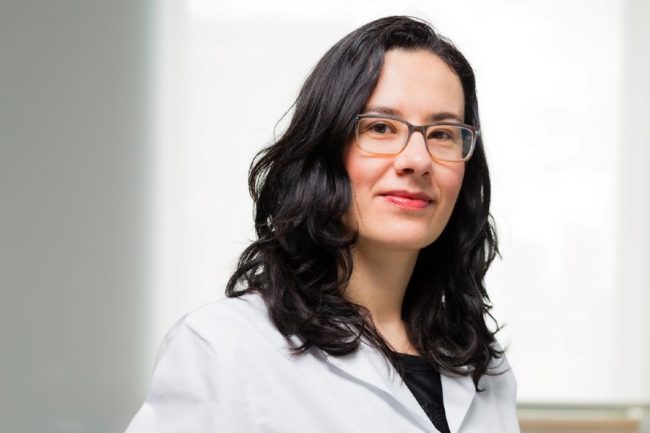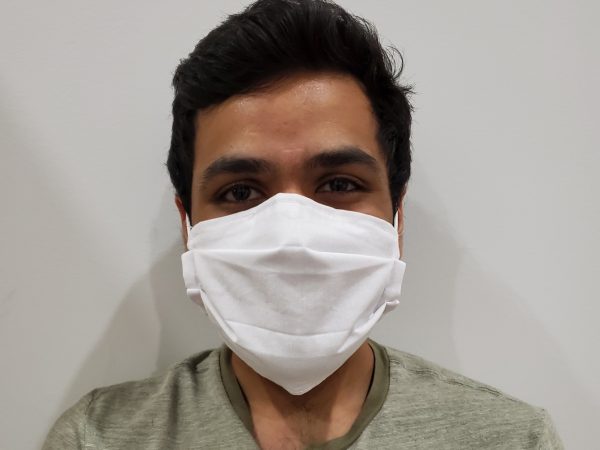COVID-19 pandemic: U of T Engineering stories

How does COVID-19 invade our bodies so easily? U of T Engineering team uses ‘organ-on-a-chip’ model to find out
In order for a COVID-19 vaccine and antiviral drugs to be developed, scientists first need to understand why this virus spreads so easily and quickly, and why it invades our bodies with seemingly little resistance from our immune system. To understand how COVID-19 enters the body and does its damage, a team of top researchers from universities, hospitals and the...

New web portal by U of T alumni connects study participants to COVID-19 research
U of T alumni Catherine Chan (Medicine) and Weiwei Li (MSE 1T6, MASc 1T8) have created a web portal to connect COVID-19 researchers with potential research study participants. Since it launched in March, there have been more than 770 COVID-19 studies posted on the portal from around the world. Chan, co-founder and chief executive officer of Toronto-based Honeybee, says there is great...

Can ultraviolet light help hospitals disinfect their supply of masks and gowns? U of T Engineering UV expert explains
As the COVID-19 pandemic continues to mount, hospitals are finding themselves short of masks, gowns, and other personal protective equipment (PPE). Some are doing what would previously have been unthinkable — disinfecting and reusing PPE. One way to do this is with ultraviolet (UV) light, which is already used to disinfect patient rooms and operating theatres. In theory, it could...

As COVID-19 protective supplies dwindle, U of T Engineering grad students are stitching face masks for Toronto
U of T Engineering graduate students Kramay Patel (IBBME MD/PhD candidate) and Chaim Katz (IBBME PhD candidate) are temporarily trading in their electrodes and amplifiers for sewing machines and cotton threads. They’ve launched Stitch4Corona, a volunteer-driven initiative to sew fabric face masks to help protect Toronto's most vulnerable during the COVID-19 outbreak. “Many of us are looking to do something meaningful while self-quarantining,” says Patel. “And as the supply of commercial face masks dwindle, we decided to create a local network of volunteers to help us provide homemade masks...

Engineering alumni startup Nanoleaf to source more than one million masks amid COVID-19 shortages
Two weeks ago they were making light panels. Today they’re sourcing medical equipment. The COVID-19 outbreak has led to reports of shortages of life-saving personal protective equipment (PPE) for front-line health workers, including in the Greater Toronto Area (GTA). Nanoleaf, a company founded by U of T Engineering alumni, has signed up to help in providing medical masks, gloves and goggles. To start, Nanoleaf has committed to donating 50,000 surgical masks to hospitals in Canada, the U.S. “or to the places in need,” says co-founder and...

FLATTEN: Engineering students create free online map to help track the spread of COVID-19
Two weeks ago, as Shrey Jain (Year 1 EngSci) and his classmates received notice that all their courses were moving online, they saw an opportunity to help flatten the curve. “I’ve always been interested in machine learning, and developing for social impact,” he says. “With everyone leaving campus and heading back home, I thought it would be a good idea...

COVID-19 and the ‘what if machine’: How simulations and models help predict pandemic spread
As the global response to COVID-19 unfolds in real time, public health officials are urging unprecedented measures in order to “flatten the curve.” But how do we know which actions are likely to slow the spread, and by how much? The answer is pandemic models, and U of T Engineering professor Dionne Aleman (MIE) has first-hand experience in building these. Aleman is an expert in the field of...
- « Previous
- 1
- …
- 3
- 4
- 5
MEDIA CONTACT
Fahad Pinto
Communications & Media Relations Strategist
416.978.4498
fahad.pinto@utoronto.ca
